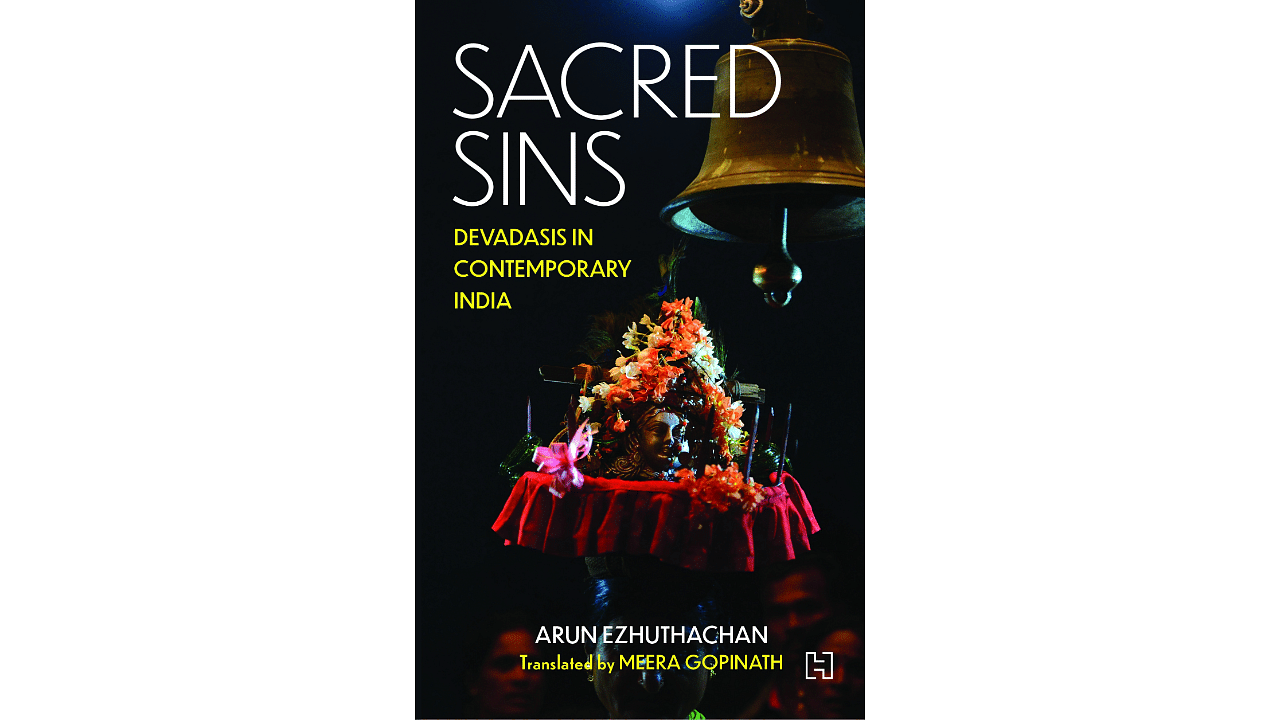
Sacred Sins
Winner of the 2019 Kerala Sahitya Akademi Award, the translation of Vishudha Papangalude India unearths the religious subjugation and consequent sexual exploitation of women buried beneath multi-layered narratives of faith and history. What began as a short report on the closing of dance bars in Mangaluru turned into an extensive investigation spanning seven states, connecting the intricate web of old beliefs with new-age oppression against women. From Uchangi in Karnataka to Peddapuram in Andhra, and from Puri in Odisha to Jalangi in Bengal, and from Vrindavan in Uttar Pradesh to Ujjain in Madhya Pradesh, Arun found the cross-cutting organic links in the artful exploitation of women who bear the brunt of society’s failings. “The stark fact is that traditions are so deep-rooted in the minds of people that reform becomes difficult,” says the author.
Not much seems to have changed since the time Amrapali was declared Nagarvadhu (royal courtesan) during the time of Buddha. The practice of dedicating women to a particular deity or royalty has continued ever since, as our society failed for long to question the relevance of this age-old practice. The very idea of freeing a woman eternally from widowhood by marrying her to a God is beset with deep discrimination and potential abuse in a male-dominated society. Written with deep empathy and social concern, Arun questions if legal provisions alone can uproot a social evil without addressing the core issues of income inequality and gender justice. No surprise, the devadasi practice has continued covertly despite a ban enforced way back in 1982.
Under the guise of tradition
Sacred Sins makes for disturbing reading. Subsequent to the ban, the government claims to have secured pensions and other benefits for devadasis.
However, the worrying news is that the actual number of devadasis is more than what the government surveys reveal. Is this so because to avail pension a woman ought to be a devadasi first? Is this then a well-thought-out provision? Moreover, the government as well as the society are yet to show commitment to rehabilitating those marginalised by the new law.
The heart-wrenching stories and shocking revelations would lead discerning readers to question the logic of parents’ dedicating young girls to temples, knowing well that they would end up as mistresses of upper-caste men and abandoned once they are older. What governments fail to respond to is this sort of blatant exploitation under the guise of “divine customs” that are ostensibly sacrosanct enough for people to believe that, if discontinued, the entire village/town will plunge into destruction.
Arun concludes that the factors of caste and socioeconomic backgrounds are two fundamental aspects that must be taken into account because it is these, strictly interwoven, which contribute to keeping this age-old practice alive.
Further, patriarchal values are held firm by religious ideas and practices, which, in turn, impose controls over women by patronising such traditions. More than enforcing the law to transform the plight of women, the author suggests, the need is to focus on transforming the economic situation of vulnerable households to avoid falling into such traditional traps. Surely, there is more to life than wasting it away in ritualistic displays of grief.
The strong historical lineage of the Devadasi tradition may have undergone many changes, but it continues to remain an integral part of many temples. The challenge is to examine and strengthen the reformist agenda to bring about a complete abolition of the tradition. While presenting a shocking but empathetic and hopeful picture of devadasis, Sacred Sins may help readers become more understanding of this social evil that needs to be abandoned. Along the way, it offers a possible remedy for a society that is riven by fragmentation, hostility, and misperception.